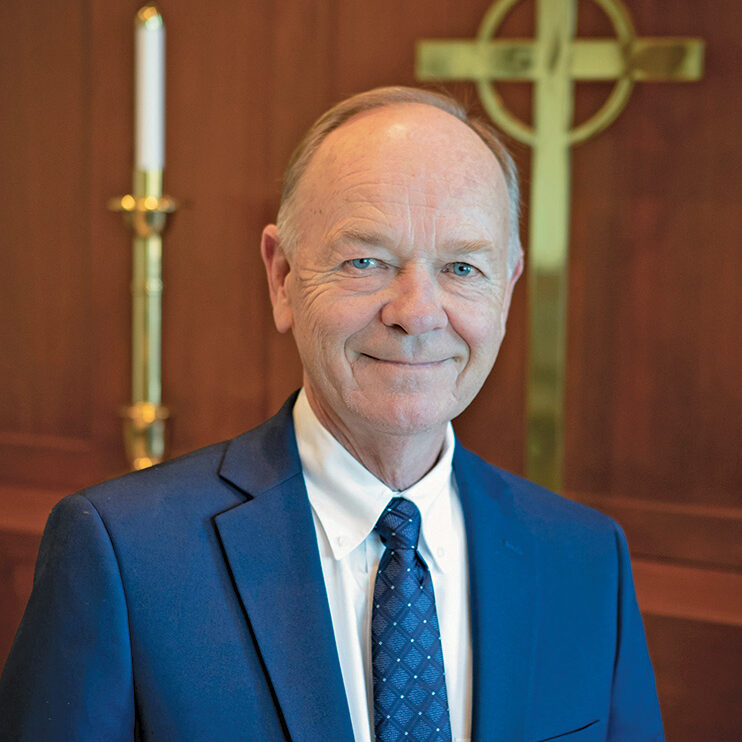 |
What does it mean when an individual receives a call to share God’s Word with other people?
Every Christian has been given the task of sharing and proclaiming the message of salvation. Jesus commissioned every believer to “go into all the world and preach the gospel” (Mark 16:15). We do that in whatever situation God has placed us. This is what we call personal ministry.
But God has also established something called the public ministry. That means someone uses God’s means of grace—the gospel in Word and sacrament—in the name of, on behalf of, and at the request of other Christians. The called worker proclaims God’s message not just on his or her own but as a representative of God and of other Christians.
Throughout the history of the church, God has called individuals to serve in the public ministry. In biblical times, that call came directly from God. He appeared to Moses in the burning bush and called him to lead his people. God also spoke directly to Elijah, Jeremiah, Isaiah, and the other prophets. Jesus called his disciples to leave their previous vocations and follow him. The risen Jesus appeared to Saul of Tarsus and called him as his messenger to the Gentiles.
In apostolic times, however, God began to call his messengers indirectly through his church. The church in Jerusalem, asking God for his Spirit’s guidance, chose Matthias as the replacement for Judas. The leaders of the church in Jerusalem chose the seven deacons to assist them in their growing ministry responsibilities.
Since that time, God continues to call men and women to serve in the public ministry through his church. The apostle Paul recognized that ministers of the gospel are called and provided by God: “Christ himself gave the apostles, the prophets, the evangelists, the pastors and teachers, to equip his people for works of service, so that the body of Christ may be built up” (Ephesians 4:11,12).
The Lutheran Confessions clearly state that no one has the right to enter the public ministry by his or her own desire or decision. The individual does so only if properly called by God through his church (Augsburg Confession, Article XIV). So today, God continues to provide workers for his church and calls them into the public ministry through believers.
While we believe the call to ministry is from God through the church, we also recognize that God has not established or mandated specific procedures in the Scriptures for calling someone to serve. In our freedom as Christians, we have adopted an orderly process for extending divine calls. The process we have agreed to is not a perfect process. Human weaknesses and flawed human judgment sometimes insert themselves. But the possible flaws in the process in no way diminish the divinity or validity of the call once it is received. It is still God who continues to call men and women to serve in the public ministry through his church.
These observations about the public ministry and the call appeared in the July 2019 Forward in Christ. They are offered again to address frequent questions about the topic.
Learn more at forwardinchrist.net/divine-call.
Author: Mark Schroeder
Volume 110, Number 08
Issue: August 2023
- The mission of WELS schools
- Blessings in tragedy
- Confusion or comfort?
- Never take it for granted
- A season of miracles
- Don’t miss the point
- Another humbling experience
- Our cross and crown
- The public ministry and the divine call
- No fear of bad news
- Big challenge, bigger blessings
- Our worldwide fellowship
- Seize the opportunities
- The Lord takes care of his church
- Savor the rain
- Up close and personal
- It’s never too early
- Thanks for not giving
- Hope for the future
- Our task is not over
- Update on WELS’ effort in Vietnam
- More workers for a bountiful harvest
- 150 years of fellowship
- A unique system of schools
- God’s cure—for everything
- Lenten repentance, Lenten appreciation
- Pray for us
- Plan with wisdom and faith
- Purposeful discussions
- Upholding biblical values
- President’s message: To judge or not to judge
- President’s message: A field ripe for harvest
- President’s message: Thoughts about the new hymnal
- President’s message: Cooperating in externals
- President’s message: Canceling the cancel culture
- President’s message: Making normal a reality
- President’s message: The fields are ripe for harvest
- President’s message: The end of the story
- President’s message: Blessings small and large
- President’s message: Standing on the truth
- President’s message: Peace on earth—but what kind?
- President’s message: Thankful—even now?
- President’s message: More than dollars and numbers
- President’s message: A time for trust
- President’s message: Future unknown, future certain
- President’s message: God’s work does not stop
- President’s message: A lesson to be learned
- President’s message: Having the right tools
- President’s message: What kind of leaders?
- President’s message: What’s love got to do with it?







